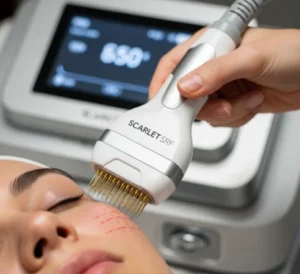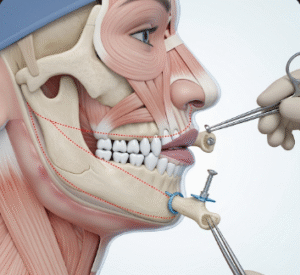Overview
Obsessive-Compulsive Disorder (OCD) is a chronic mental health condition characterized by unwanted, intrusive thoughts (obsessions) and repetitive behaviors or mental rituals (compulsions) performed to reduce anxiety. OCD affects people of all ages and backgrounds and can significantly interfere with daily functioning, relationships, and quality of life if left untreated.
While many people may experience intrusive thoughts or repetitive behaviors occasionally, OCD involves persistent patterns that become debilitating, time-consuming, and often distressing.
What is Obsessive-Compulsive Disorder?
OCD is classified as an anxiety-related disorder, although it is now placed in its own category in the DSM-5: Obsessive-Compulsive and Related Disorders. It typically involves two key components:
- Obsessions: Recurrent, persistent, and unwanted thoughts, urges, or images that cause distress or anxiety (e.g., fear of contamination, fear of harming others, unwanted sexual or violent thoughts).
- Compulsions: Repetitive actions or mental rituals performed to relieve the anxiety caused by obsessions (e.g., excessive handwashing, checking, counting, praying, or arranging objects).
People with OCD often recognize their thoughts and behaviors as irrational, but they feel unable to stop them.
Symptoms
OCD symptoms vary in type and intensity, but common themes include:
Obsessions may involve:
- Fear of contamination (germs, dirt, chemicals)
- Fear of harming oneself or others
- Need for symmetry or exactness
- Unwanted taboo thoughts (sexual, religious, violent)
- Excessive doubt or need for reassurance
Compulsions may include:
- Washing or cleaning excessively
- Checking (locks, appliances, etc.) repeatedly
- Counting or repeating actions a specific number of times
- Arranging items in a particular order
- Mentally reviewing events or repeating prayers/mantras
To be diagnosed with OCD, these behaviors must consume more than one hour per day and cause significant distress or impairment.
Causes
The exact cause of OCD is not fully understood, but research suggests a combination of:
- Biological factors: Brain structure and function abnormalities, particularly in areas related to fear and behavior regulation
- Neurochemical imbalances: Low levels of serotonin, dopamine, and glutamate
- Genetics: Family history of OCD or other anxiety disorders
- Environmental stressors: Trauma, abuse, illness, or major life changes
- Personality traits: Perfectionism, high anxiety sensitivity
In children, PANDAS (Pediatric Autoimmune Neuropsychiatric Disorders Associated with Streptococcal Infections) is a rare cause of sudden-onset OCD symptoms.
Risk Factors
Certain factors may increase the likelihood of developing OCD:
- Family history of OCD or anxiety disorders
- History of trauma or abuse
- Other mental health disorders (e.g., depression, anxiety, tics)
- Personality traits such as neuroticism or over-responsibility
- Major life stressors or transitions
OCD can begin in childhood or early adulthood, and tends to develop gradually.
Complications
Without proper treatment, OCD can lead to:
- Social isolation or relationship difficulties
- Interference with work or school
- Depression, generalized anxiety, or panic attacks
- Substance abuse as a coping mechanism
- Time-consuming rituals that dominate daily life
- Suicidal thoughts in severe cases
The chronic nature of OCD can significantly reduce quality of life and emotional well-being.
Prevention
There is no guaranteed way to prevent OCD, but early recognition and support may reduce severity:
- Early treatment of anxiety or obsessive symptoms
- Healthy coping skills for stress management
- Creating a supportive, nonjudgmental environment
- Avoiding overexposure to triggers if already vulnerable
- Education to reduce stigma and encourage help-seeking behavior
Preventive efforts are most effective when combined with open communication and mental health awareness.
Treatment Options in Korea
South Korea offers world-class psychiatric care, with effective treatments for OCD provided at both public and private mental health centers.
1. Cognitive Behavioral Therapy (CBT)
- The gold standard for OCD treatment
- Exposure and Response Prevention (ERP): Gradual exposure to feared thoughts without performing compulsions
- Helps retrain thought patterns and break the obsession-compulsion cycle
2. Medication
- Selective Serotonin Reuptake Inhibitors (SSRIs) such as fluoxetine, fluvoxamine, or sertraline
- Clomipramine (a tricyclic antidepressant) may be used for resistant cases
- Medications may take 8–12 weeks to show full effect and are often combined with therapy
3. Combination Therapy
- Many patients benefit from both medication and CBT
- May be necessary for moderate to severe OCD
4. Advanced Treatments (for severe or treatment-resistant OCD)
- Deep Brain Stimulation (DBS) (rare and in extreme cases)
- Repetitive Transcranial Magnetic Stimulation (rTMS)
- Intensive inpatient or day treatment programs
5. Supportive Therapy and Education
- Family education and involvement
- Support groups for patients and caregivers
- Stress management and mindfulness-based therapy
6. Leading Hospitals and Clinics in Korea
Top institutions offering specialized OCD care:
- Seoul National University Hospital – Department of Psychiatry
- Samsung Medical Center – Anxiety & Mood Disorder Clinic
- Asan Medical Center – OCD & Anxiety Treatment Unit
- Severance Hospital (Yonsei University) – Behavioral Therapy Center
- Private clinics such as Seoul Counseling Center, Mindful Korea, and Dr. Oh’s Psychiatry Clinic
These centers provide:
- Experienced psychiatrists and psychologists
- Multilingual support for international patients
- Culturally sensitive care and evidence-based treatment models













